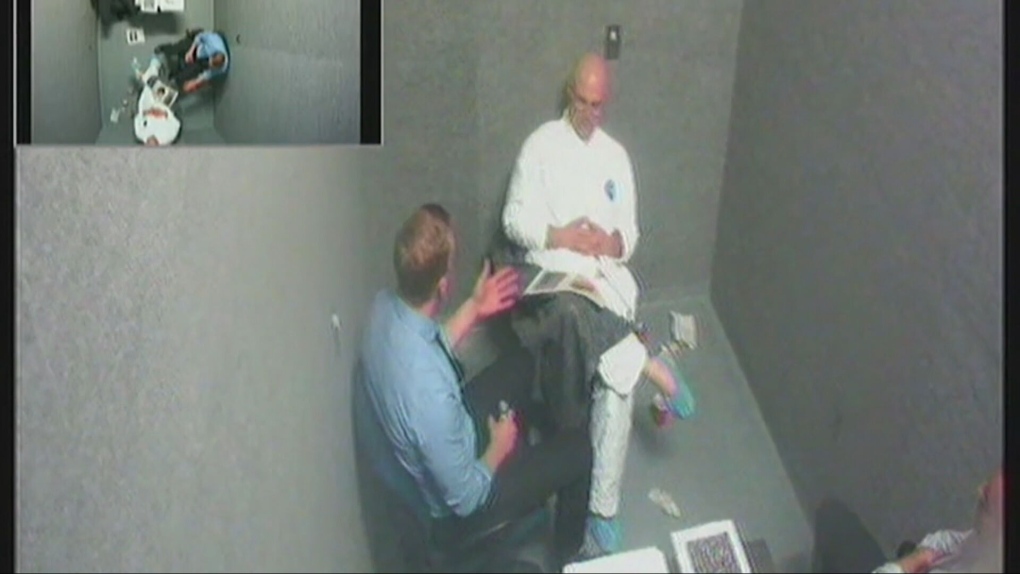News
Justice Served: Serial Killer Jeremy Skibicki Found Guilty of First-Degree Murder in Winnipeg

A Manitoba judge has found confessed serial killer Jeremy Skibicki guilty of four counts of first-degree murder, determining he was not suffering from a mental disorder when he ‘mercilessly’ killed four Indigenous women.
When Chief Justice Glenn Joyal delivered a summary of his decision Thursday morning in Manitoba’s Court of King’s Bench, a cheer erupted from the gallery.
Skibicki has now been convicted of first-degree murder in the killings of Morgan Harris, Marcedes Myran, Rebecca Contois and an unidentified woman Indigenous leaders have named Mashkode Bizhiki’ikwe or Buffalo Woman.
The 37-year-old man, who sat with his feet shackled in the prisoner’s box, remained quiet and showed no emotion as the judge read his decision.
This verdict comes a month after the six-week trial wrapped up in June.
The Crown had argued Skibicki preyed on his victims at homeless shelters, invited them back to his apartment where he abused them, often sexually, and killed them before he defiled their bodies and disposed of them in nearby garbage bins and dumpsters.
“I killed four people,” Skibicki confessed to police during an hours-long interview after his arrest in May 2022.
While Skibicki confessed to the killings, his lawyers had argued he should be found not criminally responsible for the deaths due to mental illness.
During the trial, defence had relied on the evidence of a U.K.-based psychiatrist, who testified Skibicki had been suffering from schizophrenia and had been hearing voices at the time of the killings.
Joyal rejected this evidence, finding ‘significant concerns’ and ‘foundational deficiencies’ in the psychiatrist’s analysis – such as relying on Skibicki’s own assertions that God had spoken to him.
The Crown had instead argued Skibicki’s ‘delusions’ were fabrications made up after he was arrested. They pointed to the evidence of a second psychiatrist, called by the Crown, who testified instead that Sckibicki’s actions were racially motivated and driven by homicidal necrophilia – a sexual arousal to dead bodies.
The expert testified he did not believe Skibicki had a major mental disorder, and Joyal agreed.
“The accused did not have a mental disorder such as schizophrenia,” Joyal said while reading his decision Thursday.
Joyal said a full and lengthy written decision will be released next week. A sentencing hearing will be held at a later date.
This is a developing story. More details to come.
There is a support line available for those impacted by missing and murdered Indigenous women, girls, and LGBTQ2S+ people: 1-844-413-6649.
The Hope for Wellness Hotline for Indigenous people, with support in Cree, Ojibway, and Inuktitut, is also available 24/7 in Canada at 1-855-242-3310.












